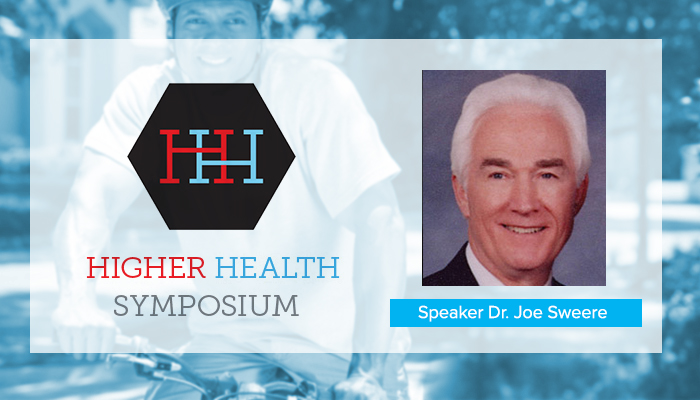The Higher Health Symposium, a day-long event for employers to explore new ideas and best practices for employee health and wellness, is just a few weeks away. Northwestern Health Sciences University, Ergotron and several partners are putting the final preparations in place to host a really powerful event. Why so powerful? Because every speaker has something unique and important to share about employer-sponsored healthcare and employee wellness. Take Dr. Joe Sweere, Professor at the Department of Clinical Sciences and Founder of the HC Sweere Center for Clinical Biomechanics and Applied Ergonomics at Northwestern Health Sciences University. He also happens to be the brother of Ergotron’s late founder Harry Sweere. We asked him a few questions about where his passion comes from and why employers should attend the symposium.
Q: First off, Joe, Ergotron and Northwestern University have a long-standing history. Can you share that history with our audience and how it led to our partnership for the Higher Health Symposium?
A: Throughout the years Ergotron has been extremely supportive of my educational and research work in occupational health and applied ergonomics here at Northwestern Health Sciences University. In a sense, we have joined forces in finding creative ways to reduce the health- related physical stresses involved in today’s workplaces. As you know, my older brother Harry was the founder of Ergotron. In fact, the prototype for the very first of his thirty-seven inventions was built in a small machine shop we owned together. Throughout the years, Harry and I spent many hours sharing ideas regarding the emerging field of applied ergonomics which had become one of my special interests as a healthcare provider. So Harry’s engineering interests and problem solving genius blended very nicely with my focus on health and wellness and the prevention of human suffering. Our Higher Health Symposium will feature a similar problem solving approach among a wide range of topics of importance to employers, all geared toward healthcare cost savings while improving the health, wellbeing and productivity of their employees.
Q: What’s the most important reason for employers and H.R. professionals to attend the symposium?
A: Since employers now bear the majority of the costs of illness and injury among their workers and their families, they find themselves in a unique role in our country’s health care delivery system. In the spirit of win-win outcomes, our Higher Health Symposium presenters will share innovative and effective methods used to keep workers on the job, injury- and illness-free and fully able to accomplish peak productivity, while at the same time assisting employers in several other ways. These include notable reduction of health care costs; notable decreases in worker absenteeism; increased worker morale, and decreases in worker turnover. These are among the goals of our Higher Health Symposium and the primary reason employers and Human Resource professionals should attend, so they may learn of the exciting options they have in dealing with these ongoing challenges.
Q: What drives your passion for wellness?
A: I suspect that most Americans believe that the primary role of doctors is to diagnose and treat illnesses and injuries. This is logical and will always remain a grave societal necessity. And obviously for doctors there is great nobility and reward in rescuing people from the immeasurable pain and suffering that results from illness and injury. Therefore, this is certainly an important role and doctors are deserving of all the societal honor and respect that this service brings.
However, as most people know, our current health care system is now faced with terrible challenges, with almost all of its emphasis being devoted to crisis care and management of chronic diseases instead of assisting their patients in attaining and maintaining their health.
So in my estimation, with all the training and clinical experience that is required of them, even greater nobility and reward should be given to those doctors who work toward preventing illness, injury and human suffering in the first place. Coming to this realization at about mid-point in my professional career has been wonderfully fulfilling, and since then I have pledged to assist in raising this consciousness among my brother and sister colleagues within all the healing disciplines.
To learn more about the Higher Health Symposium and to register to attend, visit HigherHealthSymposium.com. Join the conversation on Twitter using hashtag #HigherHealthSym16.



